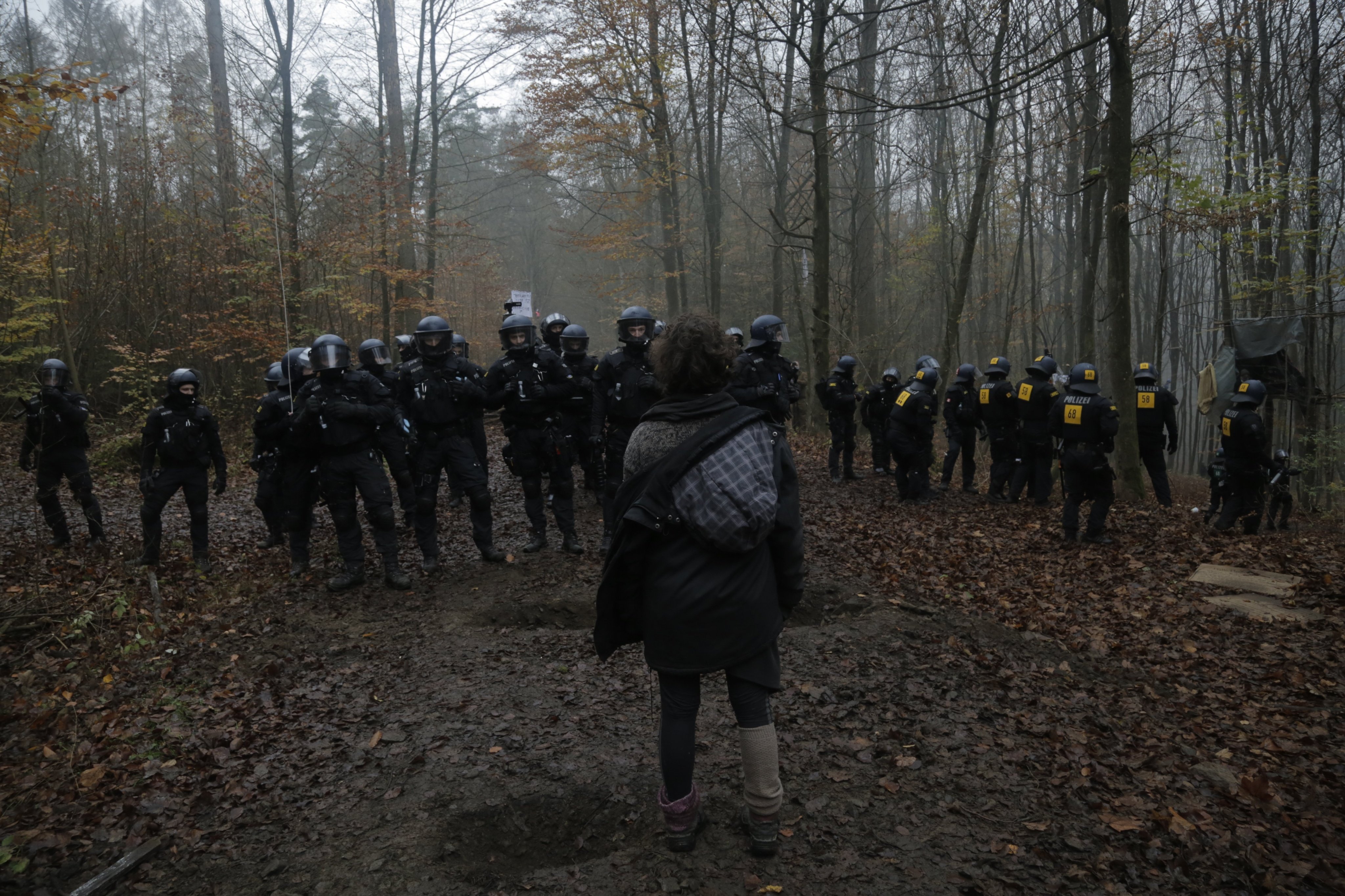

George Orwell said that the winners write the history books. With the case of India, it’s no coincidence that Gandhi is the only person that we hear about in the history textbooks, that Gandhi is so famous. Unless we realize that it is uncontrollable, complex, and very heterogeneous movements that bring about profound change, I don’t think we’d be able to act intelligently within movements of social conflicts. It was a complex interrelationship of many different tactics. In all of these historical examples that you just brought up, it wasn’t one action that brought about the change. The book is a criticism of nonviolence, and a part of that is the criticism of the entire dichotomy between violence and nonviolence. The book is not an apology or a call for violence. As Peter elaborates, nonviolence and pacifism severely limit resistance movements in upending entrenched systems of oppression and violence, of which the State is the ultimate manifestation. Peter examines two specific examples of resistance: the anticolonial movement in India in the early twentieth century (in which Mahatma Gandhi became well-known for his use of nonviolent resistance against British rule), and the civil rights and antiwar movements in the United States in the 1950s through the 1970s. Peter is the author of How Nonviolence Protects the State, which examines the most lauded “nonviolent” movements in recent history. To explore this further, I’d like to present a part of my interview with anarchist, activist, and writer Peter Gelderloos.

What are the actual tactics that we need, how do we hold places of power to create networks of solidarity? How can we resist and upend the systems of power that have produced the climate crisis to begin with?ĭrawing upon the history of effective resistance movements and their tactics can help in this regard. That’s why you have a diversity of tactics.” Of course, there are times when you just can’t use a militant force to carry out something.

They’ll present it as politically practical. “It’s only with pacifism that you have this belief that we have to respond only using nonviolence. That’s a very intelligent way to win a war: make your enemy go home, make your enemy think that they’ve already won, especially if you’re in charge of educating children.” But first and foremost, it’s the United States government, it’s the inheritor of these white supremacists systems, that claims victory. “Absolutely, an important battle was won.


 0 kommentar(er)
0 kommentar(er)
